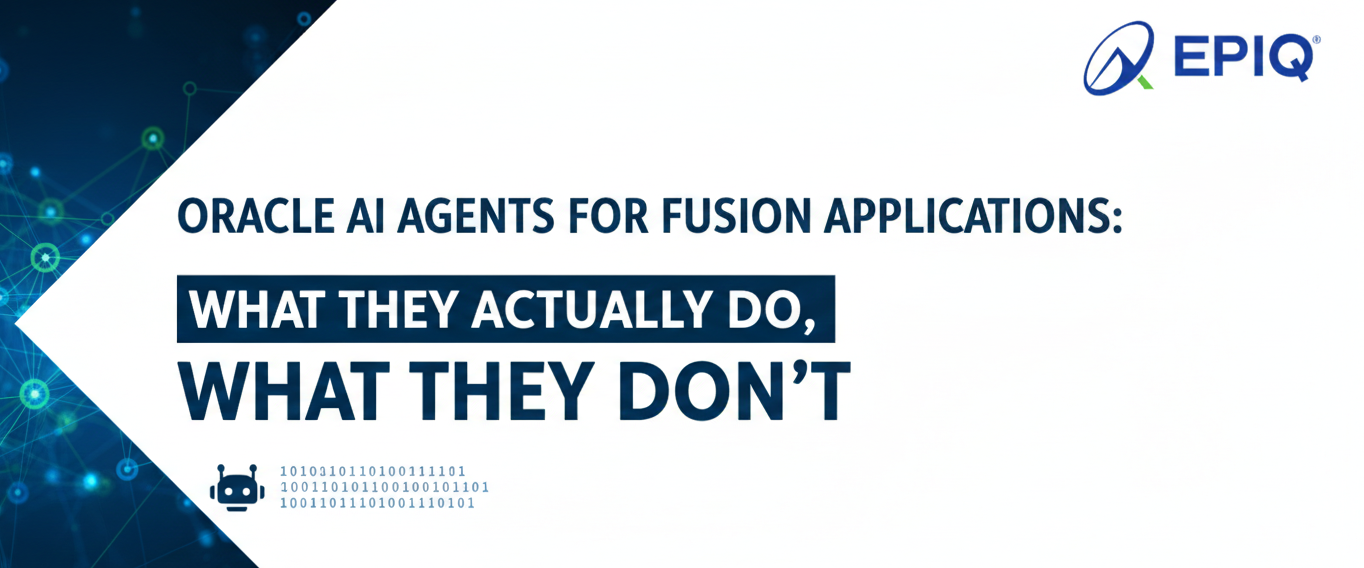In today’s fast-paced business world, the ability to efficiently and securely process payments is crucial for the success of any organization. Whether you’re running a small business or managing a large enterprise, handling payments, receiving funds, and making transactions is central to maintaining a healthy cash flow and ensuring customer satisfaction. Without a solid and effective system in place for payment processing, a business cannot thrive. This is where an Enterprise Resource Planning (ERP) system, like Oracle NetSuite, becomes a game-changer.
NetSuite is one of the most popular ERP solutions available today. It provides an extensive range of tools and features for streamlining and optimizing payment processing. In this blog, we will explore how NetSuite’s payment processing capabilities can significantly enhance your business operations and delve into the various payment methods and benefits it offers users.
What is Payment Processing?
At its core, payment processing refers to the entire process behind the scenes when a customer makes a payment. It includes the authorization, verification, and settlement of the transaction.
Payment processing is a critical element for businesses of all sizes because it ensures that funds are transferred efficiently and securely from the payer to the payee. The complexity of payment processing varies depending on the payment methods used (such as credit cards, ACH transfers, or digital wallets), but regardless of the method, the goal is always the same: to facilitate secure and accurate transactions.
Payment processing involves multiple steps:
- Authorization: This is the first step, where the payment method (credit card, ACH transfer, etc.) is verified, and the funds are temporarily held to ensure that the payer has sufficient funds.
- Verification: The payment processor verifies the authenticity of the transaction, ensuring that the details match and that no fraudulent activity is involved.
- Settlement: Finally, once the payment is authorized and verified, the funds are transferred to the payee’s account.
Given the increasing reliance on online payments, the need for businesses to adopt efficient, secure, and reliable payment systems is more pressing than ever. Without proper payment processing, businesses risk experiencing delayed transactions, payment errors, and potentially losing customers to competitors who offer a better payment experience.
The Importance of Efficient Payment Processing
Efficient payment processing is vital for businesses looking to thrive in today’s competitive market. Let’s take a closer look at why it’s so important.
- Improved Cash Flow
For any business, cash flow is one of the most important indicators of financial health. Efficient payment processing ensures that payments are received and processed quickly, which directly improves cash flow.
This means that businesses can manage their operational expenses more effectively, invest in growth opportunities, and avoid financial bottlenecks caused by delayed or missed payments.
In effect of NetSuite’s integrated payment processing system, businesses have real-time visibility into their accounts, making it easier to track incoming and outgoing payments. This transparency reduces the time it takes to recognize revenue and allows businesses to make more informed financial decisions.
- Reduced Errors and Fraud Risks
Manual payment processing often leads to errors, either through human oversight or incorrect data entry. This can result in delayed payments, discrepancies in financial records, and, in some cases, significant losses. NetSuite minimizes these risks by automating payment workflows and providing advanced fraud detection features. The system can instantly flag potentially fraudulent transactions and ensure that only legitimate payments are processed.
Moreover, by adopting NetSuite’s secure payment gateways and tokenization technology, businesses can protect sensitive financial data from theft or unauthorized access, reducing the risk of fraud.
- Enhanced Customer Experience
Today’s customers expect a smooth, quick, and secure payment process when they interact with businesses. If payment processing is slow, cumbersome, or unreliable, it can lead to customer frustration and even drive them to seek alternatives.
NetSuite’s payment processing capabilities offer a broad range of payment options that cater to various customer preferences, including credit cards, ACH transfers, and even digital wallets like PayPal and Apple Pay.
An efficient payment system also allows businesses to issue invoices, process payments, and manage refunds or chargebacks without excessive delays. This convenience fosters a positive relationship with customers, enhancing their loyalty and satisfaction.
- Operational Efficiency
Manual payment processing requires significant time and effort from employees, particularly in larger organizations where the volume of transactions can be overwhelming. NetSuite helps reduce the manual burden by automating several aspects of payment processing. This frees up employees to focus on more strategic tasks like customer service, product development, or improving business operations.
Additionally, the automation of reconciliation processes ensures that financial records are updated and accurate in real time, reducing the chances of errors and ensuring that accounts are always in sync.
- Scalability
As businesses grow, their payment processing needs also evolve. In the early stages of a business, payment volumes might be small and manageable. However, as a company expands, its payment processing system must be able to handle a larger volume of transactions efficiently.
NetSuite’s payment processing system is built to scale. Whether you’re handling hundreds or thousands of transactions a day, NetSuite can support your needs without compromising the speed or accuracy of the process.
Payment Processing Methods in NetSuite
NetSuite offers a wide variety of payment processing methods to suit businesses with different needs. Below are the most common payment options available within the NetSuite ecosystem.
- Credit Card Processing
Credit cards are still one of the most popular methods of payment for consumers, and NetSuite makes it easy for businesses to process credit card transactions. Through its SuitePayments feature, businesses can securely process credit card payments, with features for both authorization and settlement.
NetSuite’s payment processing system ensures that all credit card payments are processed in compliance with PCI DSS (Payment Card Industry Data Security Standard), providing a secure environment for both businesses and customers.
Businesses can also take advantage of tokenization, which replaces sensitive payment data with a unique identifier (token), ensuring that credit card details are never exposed during transactions.
- ACH Payments
For businesses that want to reduce transaction fees and simplify payment methods, ACH (Automated Clearing House) payments are a great option. ACH payments are often used for direct bank transfers, allowing businesses to transfer funds directly from one bank account to another without incurring the high fees typically associated with credit card payments.
NetSuite integrates ACH payment processing within its platform, enabling businesses to manage bank transfers with ease.
ACH payments are particularly beneficial for businesses involved in B2B transactions or subscription-based services, as they offer a cost-effective way to handle recurring payments.
- Alternative Payment Methods
As payment methods continue to evolve, NetSuite ensures that businesses have access to the latest innovations. Today, many consumers prefer digital wallets, such as PayPal, Apple Pay, and Google Pay, for their convenience and security. NetSuite integrates these alternative payment methods into its platform, allowing businesses to cater to a broad range of customer preferences.
In addition, with the rise of cryptocurrency, NetSuite is also exploring ways to support digital currencies. Businesses that operate in industries where cryptocurrency transactions are popular can integrate these payment methods into their systems, enabling them to stay ahead of the competition.
Setting Up Payment Processing in NetSuite
Setting up payment processing in NetSuite is straightforward and can be done in just a few steps. Let’s look at the main components involved.
- Payment Processing Profiles
In NetSuite, businesses can create custom payment processing profiles that define how payments will be handled. These profiles specify the types of payment methods to accept, the payment gateways to use, and the rules for processing transactions. Businesses can also set up fraud detection filters to minimize the risk of fraudulent transactions and ensure compliance with industry regulations.
- Gateway Integrations
NetSuite supports integration with a variety of certified payment gateways, including popular providers like FreedomPay, Cybersource, and Solupay. These gateways facilitate secure transactions and provide businesses with options for processing payments across different platforms.
Businesses can also integrate non-certified payment gateways, but these require custom integration with the help of an implementation partner. It’s important to choose a reliable and secure gateway to ensure that payment transactions are processed smoothly and securely.
- Tokenization and Security
Security is a major concern in payment processing, especially when dealing with sensitive customer data. NetSuite uses tokenization to protect payment data during transactions. Tokenization replaces sensitive information like credit card numbers with a unique identifier, reducing the risk of data breaches and fraud. NetSuite also ensures compliance with PCI-DSS standards, which is essential for any business that processes payments electronically.
Conclusion: How NetSuite Payment Processing Helps Your Business
Effective payment processing is a cornerstone of successful business operations, ensuring that funds flow smoothly between buyers and sellers. With Oracle NetSuite, businesses gain access to an integrated and secure payment processing system that not only enhances the customer experience but also improves financial visibility, reduces errors, and helps businesses scale their operations. Whether you’re processing credit card payments, ACH transfers, or embracing alternative payment methods, NetSuite provides the tools necessary to optimize your payment workflows.
NetSuite assists firms in cost-cutting, fraud risk reduction, and cash flow management by automating essential components of payment processing and providing a variety of payment choices. As your business grows and diversifies, NetSuite’s scalable payment processing system will be able to meet the increasing demands without compromising on efficiency or security.
For businesses looking to improve their payment processing system and enhance overall operational efficiency, NetSuite offers a robust solution that integrates payments with all other facets of business management, helping you stay competitive in a rapidly changing market.







